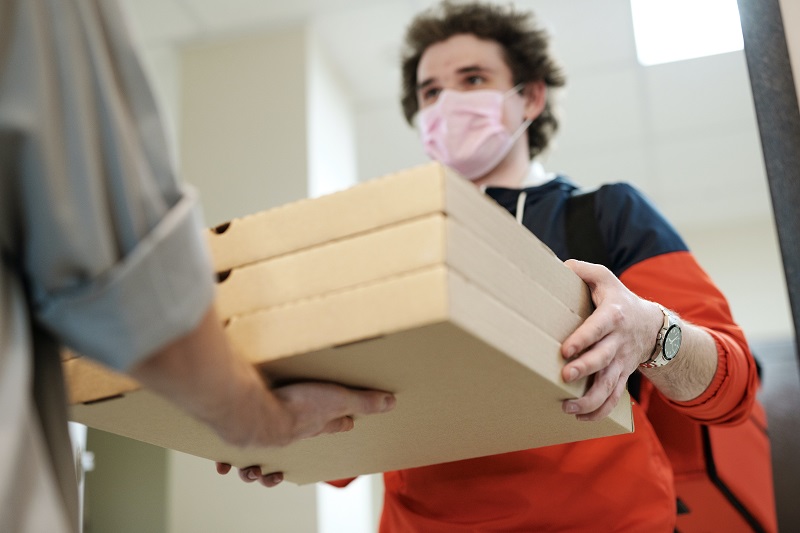A better ‘new normal’
August 26
It’s 2020. The world is battling the novel coronavirus. Economies have shrunk and gone into recession. Person-to-person transmission is on the rise and death rates along with it. Governments have imposed lockdowns and people are jittery and reluctant to think beyond the pandemic and plan for the post-COVID-19 era. But as the saying goes, “when life gives you lemons, make lemonade”, and young people must find a way to make some good come out of this crisis, writes Commonwealth Correspondent Bryan Obaji from Calabar in Nigeria.
COVID-19 presents a wide range of opportunities for young people to leverage on, to better themselves and their communities, and to boost the economy, young people heard at a recent Commonwealth Action webinar session.
The webinar series aims to engage young people from the Commonwealth’s 54 member countries to discuss their pressing issues and agree on tangible solutions to be presented to leaders.
The second session, which coincided with International Youth Day on August 12, focused on trade, employment, and entrepreneurship opportunities. The discussion was a wake-up call to young people to roll up their sleeves and get into action in the face of the pandemic.
But how can young people play a vital role in making the new normal a better normal? They can create products and provide services that are in high demand. They can also introduce ways of disposing of waste such as Personal Protective Equipment (PPE) in an environmentally-friendly manner.

No doubt the virus has changed user behavior, and most people now use alternative methods of service delivery. Organisations and groups have embraced virtual meetings, schools have adopted online learning and other options to cater for students, online sales have spiked, and telemedicine is being widely used by health professionals to consult patients.
The world has been forced to accept a new reality– and all of that is geared towards digital skills. Our awareness has been awakened to the fact that entrepreneurs must embrace technology. Even government institutions have introduced digital skills to meet the demands of citizens, for example, by offering virtual court hearings.
A digital skill does not automatically guarantee success. However, smart entrepreneurs should identify areas where digital technology is most useful, for example, as a link between buyers and sellers, or to provide technology-based solutions to problems in their community.
Digital skills do not make other disciplines less important, they only enhance them. For example, a psychologist working with people who have suffered breakdowns due to COVID-19 will still need their medical background. However, digital skills will enhance their opportunities by enabling them to hold virtual appointments with patients.

It is very rare to see start-up businesses with no challenges, ranging from logistics to accessing online payments, especially in countries where online payments are not accepted. Governments should do their best to remove bottlenecks and provide an enabling environment for entrepreneurship to thrive.
This pandemic should not be allowed to go to waste. Governments in many countries are shifting ground and adjusting to new realities. They have been forced to modify certain areas to attract investors. Companies are exploring different ways to maximise profit. The traditional working hours of 9am to 5pm no longer matter in some organisations—only profitability does. Working from home has taken root, improving productivity for most employees and less time spent in traffic and commuting.
Young people should take advantage of whatever is within their sphere and make the best of it now. This period should record many more gains than losses. Since young people are a driving force, a united youth front is key to unlocking many opportunities. Young voices can help pressurise policymakers to make policies that will help launch young people to a better new normal.
Photo credit: Main photo by Ashok Adepal from Pexels
Delivery photo by Norma Mortenson from Pexel
Online tuition photo by Retha Ferguson from Pexels
…………………………………………………………………………………………………………………………………………………………………
About me: I am Jetem Bryan Obaji, a trained accountant. Presently, I work for a not-for-profit organisation, sensitising the public on the need for basic education. In the coming years I hope to channel my efforts and resources towards ensuring a better quality of life for people. Reading, writing, and playing fun games are my interests.
…………………………………………………………………………………………………………………………………………………………………
Opinions expressed in this article are those of the author and do not necessarily represent the views of the Commonwealth Youth Programme. Articles are published in a spirit of dialogue, respect and understanding. If you disagree, why not submit a response?
To learn more about becoming a Commonwealth Correspondent please visit: http://www.yourcommonwealth.org/submit-articles/
……………………………………………………………………………………………………………………………………………………………………





